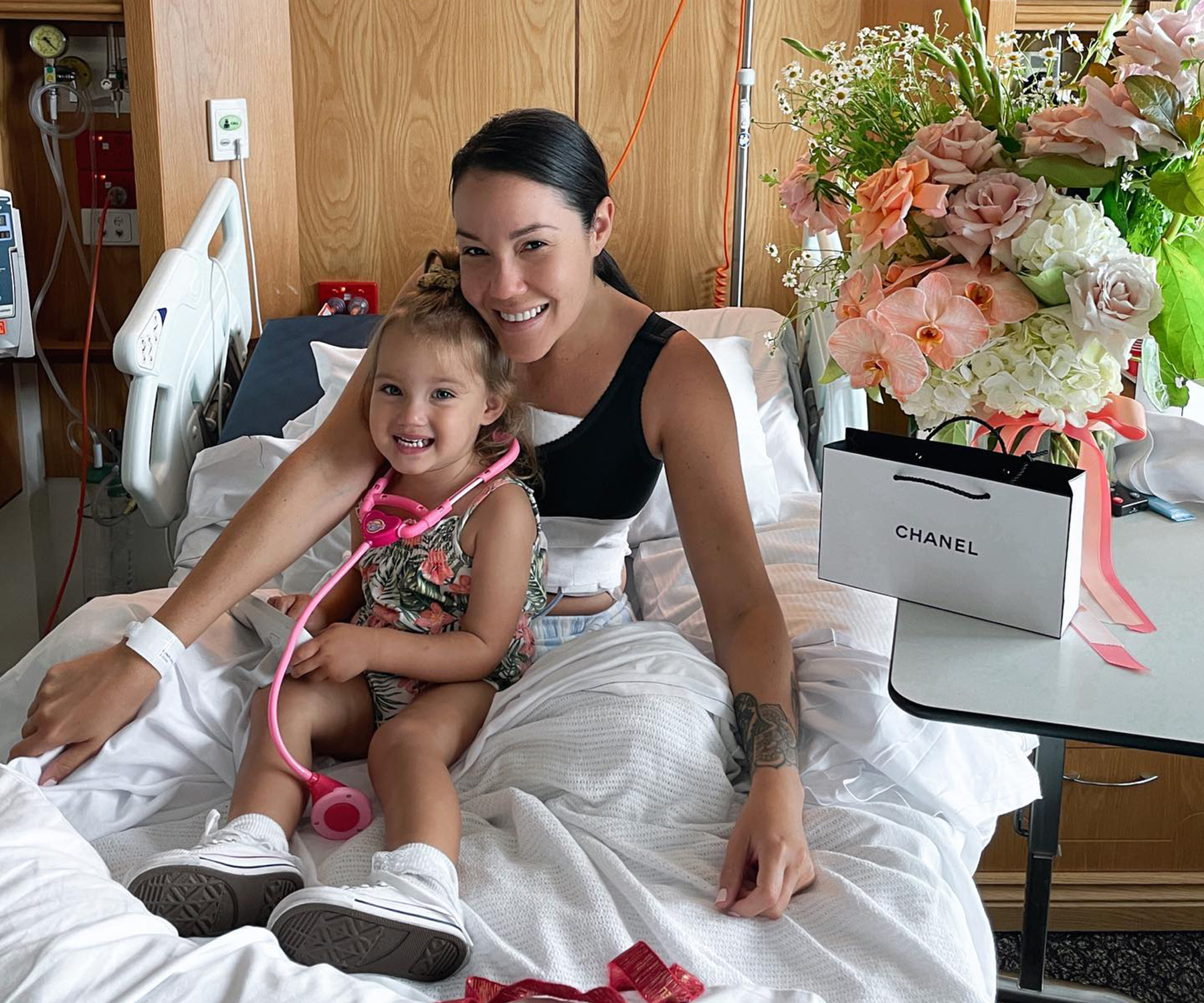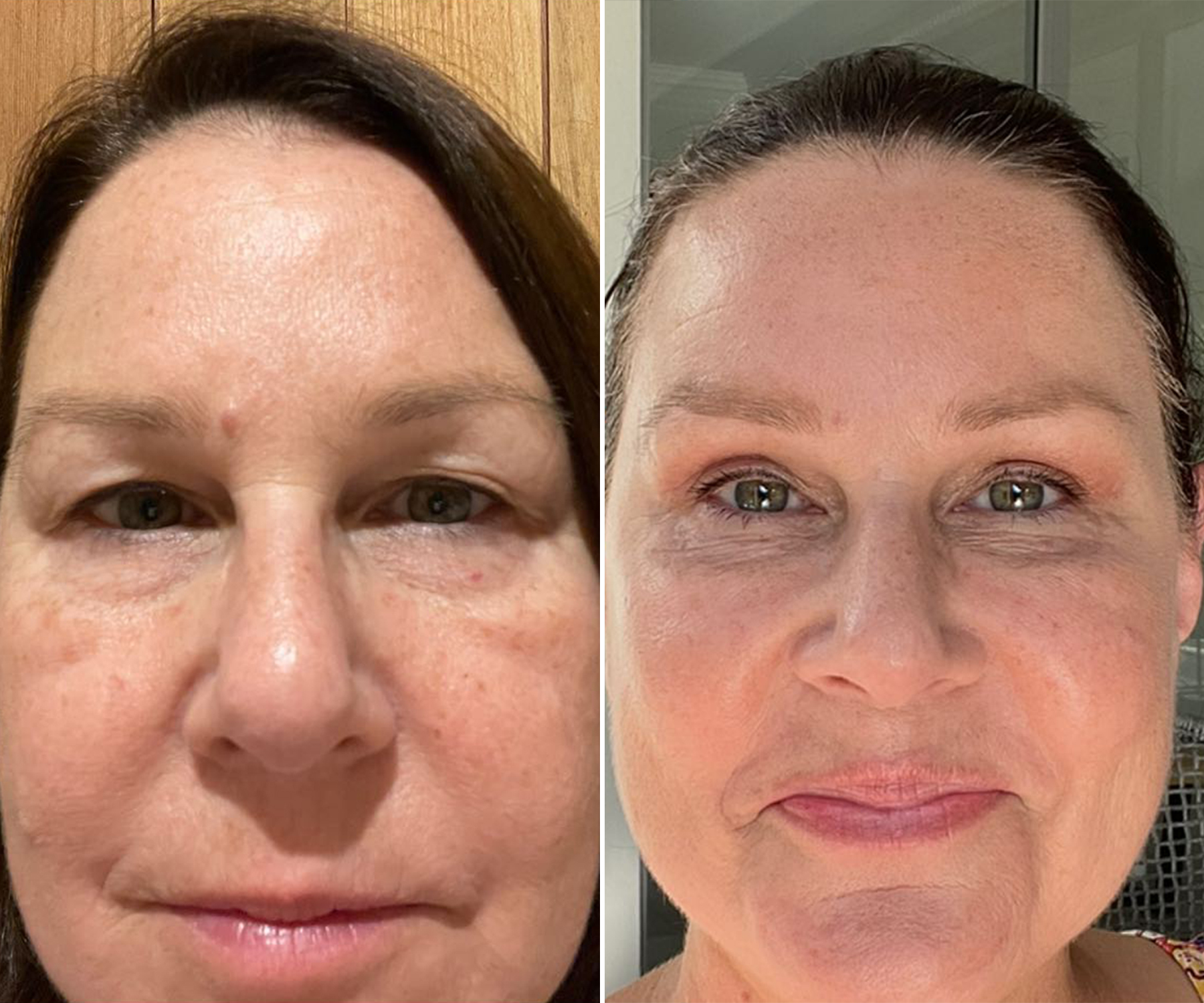Trigger warning: This article contains mentions of body image issues, which may be triggering for some readers.
From Jessika Power, to Martha Kalifatadis and Julia Morris, Australian celebrities are becoming more open about getting cosmetic surgery.
While some flaunt dramatic transformations and go into detail about their procedures, others choose to keep the specifics private.
But regardless of how much these stars share about their enhancements, one thing stays the same: Australian women can’t tear their eyes away.

Julia Morris, Martha Kalifatadis and Jessika Power have all been open about undergoing cosmetic procedures.
(Image: Instagram)Fans and critics alike flock to see Married At First Sight stars show off their latest transformations and Instagram posts about their nose jobs, breast implants or lip fillers are flooded with comments every time.
But is this cosmetic procedure boom among social media and reality TV stars changing what we think about plastic surgery?
Dan Kennedy, Specialist Plastic Surgeon and President of the Australian Society of Plastic Surgeons (ASPS), tells Now To Love exclusively that social media has had a huge impact on the way people view cosmetic procedures.
“Exposure to procedures via Instagram, Snapchat, Married at First Sight and influencers has the effect of normalising cosmetic procedures and changing the expectation of patients,” he explains, adding that this be positive and negative.
Studies have shown that young women are more likely to want cosmetic surgery after seeing images of stars with cosmetic procedures and more social media use has been linked to a higher desire for surgery, as well as an increasingly negative impact on body image.
So, when stars like Jessika Power take to Instagram to show off the results of a $13,000 ‘fat transfer’ surgery to enhance her breasts, you better believe the people who see her posts are Googling the same procedure.
Dan admits he’s had several patients bring in social media photos of stars as their desired “after” appearance, and the results they’re asking for are growing increasingly dramatic.
“When I went into practise the ideal goal was that your plastic surgery ‘did not show’,” he reveals.
WATCH: MAFS’ Jessika reveals all the plastic surgery she’s had. Story continues after video.
“Some patients have now been influenced to want an unnaturally large set of lips, or breasts, or buttocks, and want their surgery to display ‘value for money’.”
But those kinds of drastic results come with unwanted long-term side effects like stretched skin and wrinkles; though we rarely see that side of surgery on social media.
Dan obviously isn’t against people undergoing surgery, he just wants potential patients to be informed about the realities of these procedures.
“Cosmetic procedures and surgery can work to enhance confidence, but they can also bring pain and regret if things don’t go well. Procedures can fail to meet expectations even when the outcome is good,” he adds.
Just look at MAFS alum Davina Rankin: she had a breast augmentation at 18 to boost her confidence, but underwent a second surgery to remove them last year after experiencing symptoms linked to breast implant illness.

Davina, who also rose to fame on Married At First Sight, was open about undergoing explant surgery to remove her breast implants.
(Image: Instagram)Martha Kalifatadis is another celebrity working to change the conversation around plastic surgery on social media by choosing not to share details of her own procedures.
The former MAFS bride opts not to advise fans who asked about her breast implants, writing on Instagram: “It really worries me when people ask me for advice on this or would even be influenced by what I say.
“I’ve decided not to share details about my surgery on here because it’s not a one size fits all.”
She went on to say that she would feel responsible if someone took her advice and went on to have a procedure they were unhappy with, or that had negative outcomes.
The 32-year-old added: “You need to speak with your surgeon, the only person who is qualified to give their opinion on which option is best for you.”

Martha chooses not to share details about her breast augmentation and rhinoplasty with social media followers.
(Image: Instagram)It’s advice that Dan echoes, saying that anyone considering surgery should think carefully before approaching a specialised practitioner for a consultation.
He warns against surgeons who put money before professionalism and those who will say “yes” to any procedure, and urges patients not to judge a practitioner’s skill by Instagram photos alone.
In 2019, the chair of the Australian Society of Plastic Surgeons Ethics Committee Dr Richard Theile wrote in the Australasian Journal of Plastic Surgery that practitioner’s “moral cues don’t come from Instagram.”
It’s a concept we should also be applying to our own individual approaches to plastic surgery.
While cosmetic procedures and the people who seek them out should never be demeaned, trolled or demonised, these surgeroes also shouldn’t be glorified or normalised to the point of promoting unrealistic beauty standards.

Julia shared these before and after photos from her surgery in 2021.
(Image: Instagram)Being open about cosmetic procedures online can be a great thing, like when I’m A Celebrity… Get Me Out Of Here! host Julia Morris shared her joy at the outcome of her brow lift and eyelid surgery in 2021.
But we should always take these posts with a grain of salt and a healthy dose of reality, and when it comes to seeking out procedures of our own, it may be wise to reflect on Julia’s words.
“I’ve got absolutely no interest in anybody’s opinion … it’s something that I wanted to do for me,” she said.
If you or someone you know has been affected by any of the issues raised in this article, help is always available. Call The Butterfly Foundation’s national helpline on 1800 33 4673 or visit their website
-(1).jpg)
.jpg)
.png)
